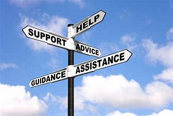Risk Taking


Teenagers and Risk Taking Behaviour
Its about getting through the teenage years together.
Having a teenager in the family can be tough. As a parent/carer you might feel that overnight your child has become sulky, bad tempered and seems to want to do nothing but shock you. But teenagers themselves may be feeling that they are going through a tough time too.
The world has changed a lot since you were a teenager. It is best to be open about the risks they might be taking so that you can do what you can to keep your teenager safe.
Research shows that teenagers want their parents/carers to talk to them about risk taking behaviour. It may not be easy but it is worth making the effort.
On-line risk taking and anti-social behaviour is very prevalent with teenagers and can be difficult for you as a parent/carer to monitor. Be proactive, monitor online behaviour.
Tips
- Listening and talking openly to your teenager about the risks and challenges they will come up against, can help reduce the risks that they face in their day-to-day life.

- Don’t try to force a conversation. It’s a good idea to keep and open mind and accept that talking about the difficult issues might be tricky for you both.
- Let them know that you understand that the pressures teenagers face can be difficult.
- Give them practical ways to help them stay safe so they don’t have to learn through their mistakes.
- Don’t be afraid to ask for help.
Tools and Techniques
Strategies:
- Don’t panic if you think your teenager is using drugs, drinking or having sex.
- Your behaviour will influence them most. Positive messages help.
- Help them see they can have a mind of their own, that their friends may be just showing off and that they can say ‘no’ to pressure.
- Make them aware of the risks. Teenagers need to understand the risks surrounding sex and getting involved in antisocial behaviour.
- Don’t expect instant solutions. Drugs and alcohol may be covering other problems such as bullying.
- Don’t try to solve everything with one conversation.
- Talk about safe choices – not going out late alone, knowing how to get home, keeping in touch, letting friends know where they are.
- Let them know they can call for help if they need it.
Who can help

School – guidance teachers cover risk taking behaviour in PSE lessons. This covers not only the dangers and consequences but also practical advice on how to stay safe.
- Aberlour – Family Outreach Dundee, 01382 313500
- Children First, 01382 349910, www.parentlinescotland@children1st.org.uk
- TCA, www.alcoholtayside.com
- The Corner, Dundee, 01382 206060, www.thecorner.co.uk
This information can be downloaded as a pdf booklet from this link.

